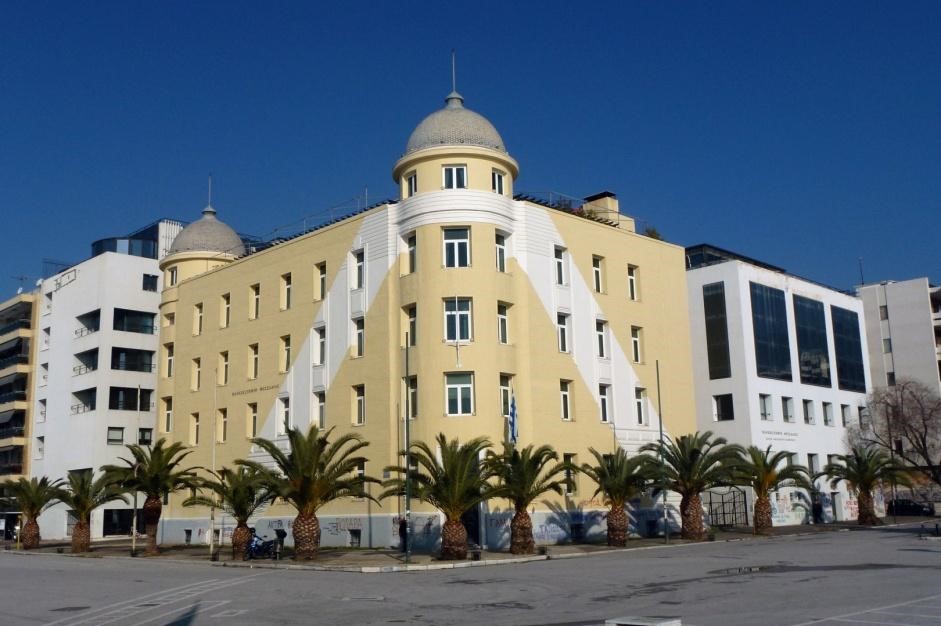Educational commons and active social inclusion – Agenda Conference & InfoPack
pechtelidis2023-04-15T12:03:20+02:00All below details of the Conference (Conference Program/Agenda and InfoPack) are included in the Agenda Conference_Infopack.pdf
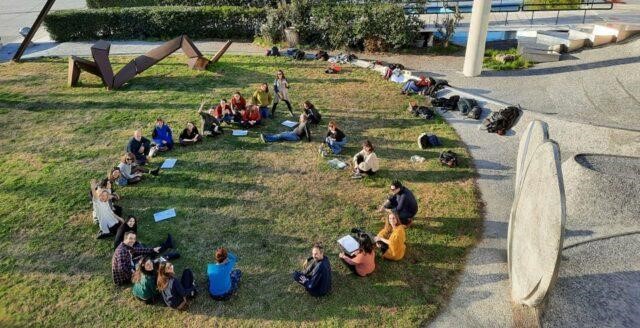
26/05 Friday
Registration 16:00 p.m. – 17:30 p.m.
Welcome, Yannis Pechtelidis 17:30 – 17:45 p.m., Amphitheater “Saratsi”
Contemporary challenges and educational commons Chairing Alekos Pantazis 17:45 – 20:30 p.m.
- “The Political and Educational Commons in Transition: A Response to Contemporary Challenges”, Noah De Lissovoy (17:45-18:30) The Political and Educational Commons in Transition: A Response to Contemporary Challenges
- “Educational commons and three policy debates”, Jordi Collet-Sabé (18:30-19:15) Educational commons and three policy debates
- “Becoming fecund audiences to childhood publics”, Sevasti-Melissa Nolas, (19:15-20:00) Becoming fecund audiences to childhood publics
Discussion (20:00-20:30 p.m.)
Dinner 21:30 p.m.
———————————————————————————————————————————————————————————————————————————————————————————–
27/05 Saturday
9:00 – 10:30 a.m. 2 Panels
1st Panel: Inclusive strategies, chairing Sophia Moisiadou & Stelios Pantazidis, Room: “Skouvara”- “Seeking integration and continuity for refugee children and youth: Problems, challenges and possibilities within the German context”Case -Study: Federal State of Schleswig – Holstein”, Vassilis Tsianos & Christos Zisis Seeking integration and continuity for refugee children and youth: Problems, challenges and possibilities within the German context
- “Understanding Cultural Difference and Equality on the Refugee Issue through History: Teaching approaches in the Greek public kindergarten”, Bantiou Marina Understanding Cultural Difference and Equality on the Refugee Issue through History: Teaching approaches in the Greek public kindergarten
- “Self-organization of migrant & refugee students through pedagogical practices of the commons”, Sophia Moisiadou & Stelios Pantazidis Self-organization of migrant & refugee students through pedagogical practices of the commons
- “Social Pedagogy as a meaningful perspective for education and social learning in classroom”, Despoina Styla, Vassilis Pantazis “Social Pedagogy as a meaningful perspective for education and social learning in classroom”
- “Make common- Teaching through play”, Kristine Hultberg Ingridz “Make common- Teaching through play”
- “Encountering Mathematics and the Commons through CreatingImaginary Spaces in the Preschool Setting” Lazaridou Eirini, Bicknell Danae, Chronaki Anna, Lykourioti Iris, Symeonidou Ioanna “Encountering Mathematics and the Commons through CreatingImaginary Spaces in the Preschool Setting”
- “From photography to citizenship, from private to public – Photo stories’’, Maria Dimopoulou, Kalliopi Kyrdi, Τhalia Dragona “From photography to citizenship, from private to public – Photo stories’’
- “Imaginary City. Educational Commons in Action: Students’ Collaborative Efforts to Redesign their Neighborhood”, Maria Kechagioglou, Maria Kokorotskou, Antonis Vlahos, MoMus “Imaginary City. Educational Commons in Action: Students’ Collaborative Efforts to Redesign their Neighborhood”
10:30 – 12:00 a.m.
2 Panels & 1 Workshop
1st Panel: Teachers as commoners, chairing George Papagiannitsis & Anastasios Siatras, Room: “Skouvara”- “Preschool Teachers’ Views of Democratic Learning Processes in Interaction with Children in Sweden–an intergenerational perspective”, Rauni Karlsson Preschool Teachers’ Views of Democratic Learning Processes in Interaction with Children in Sweden–an intergenerational perspective
- “Community-based pedagogy and solidarity practices in teacher education: A case study”, Anastasios Siatras & Alexandros Mokias Community-based pedagogy and solidarity practices in teacher education: A case study
- “Let’s talk about Commons”: Exploring teachers and other educators’ conceptions of the RED_SMOOTH project”, Catarina Tomás, Elisabete X. Gomes, Carolina Gonçalves, Juliana Gazzinelli e Aline Almeida Let’s talk about Commons”: Exploring teachers and other educators’ conceptions of the RED_SMOOTH project
- “Exploring educators’ views about education, inequalities and the commons”, Paschalis Arvanitidis, George Papagiannitsis and Athina-Zoe Desli Exploring educators’ views about education, inequalities and the commons
- “Transnational Gangs as Agents of Educational Commons: The case of the Latin Kings and Queens Nation”,Carles Feixa Transnational Gangsas Agents of EducationalCommons: The case of the Latin Kings and Queens Nation
- “Who encourages pupils for further learning?”, Peter Tibor Nagy Who encourages pupils for further learning?
- “Pedagogical interventions and class positions in schools: an ethnographic study from semi-peripheral Hungary”, György Mészáros, Inclusion4Schools Project Pedagogical interventions and class positions in schools: an ethnographic study from semi-peripheral Hungary
- “The SMOOTH project”, Ioannis Kozaris The SMOOTH project
- “The building of pedagogical material, an alternative way to educate using educational commons”, Antoine Henry, Alain Mille, Jérémie Virgo The building of pedagogical material, an alternative way to educate using educational commons
- The Sociocratic Circular Methodology (SCM) as a methodology of the educational commons”, Naya Tselepi The Sociocratic Circular Methodology (SCM) as a methodology of the educational commons: Workshop
Coffee break 12:00 -12:30
12:30 – 14:00 p.m. 2 Panels & 1 Workshop
1st Space and commons in education, chairing Eirini Lazaridou & Danai Bicknel, Room “Skouvara”- “Digital Design & Construction Commons and their role in Architectural Technology Education”, Dimitris Psychogyios “Digital Design & Construction Commons and their role in Architectural Technology Education”
- “Listen to: How architectural thinking can be important to the rest of the campus”, Elsa Kiourtsioglou “Listen to: How architectural thinking can be important to the rest of the campus”
- “Participatory reuse of materials as an educational process of sharing knowledge and creating communities”, Maria Dimitriou-Tsaknaki “Participatory reuse of materials as an educational process of sharing knowledge and creating communities”
- “From teaching the commons to commoning teaching: towards a reflexive architectural education”, Effrosyni Roussou, Androniki Pappa, Alexandra Paio From teaching the commons to commoning teaching: towards a reflexive architectural education
- “Ambiances of common education: The case of Mesopotamia Solidarity School, Athens, Greece”, Alexandros Kioupkiolis Ambiances of common education: The case of Mesopotamia Solidarity School, Athens, Greece
- “Infrastructuring education as Commons: The Solidarity Schools’ Network in Greece”, Christos Giovanopoulos Infrastructuring education as Commons: The Solidarity Schools’ Network in Greece
- “Solidarity School of Mesopotamia” Mariniki Koliaraki, & Christos Korolis Solidarity School of Mesopotamia
- “Network of Solidarity Schools”, Mariniki Koliaraki & Christos Korolis Network of Solidarity Schools
- “Working with children inside and outside school: Skasiarchio’s Social Pedagogy Group in action”, Anastasia Karagianni & Charalampos Baltas Working with children inside and outside school: Skasiarchio’s Social Pedagogy Group in action
“Educational Commons and Democratic Education”, Charlie Moreno-Romero Educational Commons and Democratic Education
Lunch break 14:00 – 16:00
16:00 – 17:30 p.m. 2 Panels, 1 Workshop
1st Panel: Art, creativity and educational commons, chairing Elina Moraitopolou & Elena Viseri, Amphitheater “Saratsi”- “Time lost and found: the time factor in educational commons – a view from MoMus”, Elina Moraitopolou, Elena Viseri, Panagiotis Kanellopoulos, Niki Nikonanou Time lost and found: the time factor in educational commons – a view from MoMus”
- “Co-operation through free expression”, Fotini Dimopoulou, Marilena Georganta Co-operation through free expression
- “Educational Commons in Explorations of the Human Being’s Place in Nature: A Swedish case-study”, Liselott Mariett Olsson, Robert Lecusay and Monica Nilsson, Riina Lundell, Kristina Rickan and Joanna Forsman, Birgitta Forsman, Ellen Spens and Erik Rask Educational Commons in Explorations of the Human Being’s Place in Nature: A Swedish case-study”
- “Reforming the Educational Approach of Museum Education: Lessons Learnt from Participation in the SMOOTH Project”, Maria Kechagioglou, Christina Papaioakeim, Evi Papavergou, Katerina Paraskeva Reforming the Educational Approach of Museum Education: Lessons Learnt from Participation in the SMOOTH Project
- Alternative pedagogies, heterotopias or real utopias in education: advancing freedom and equality: “A Realistic Utopia for a Libertarian School of Commons”, Silia Raditsa, Sasa Dimitriadou, Sofia Sarakenidou, Yannis Pechtelidis Alternative pedagogies, heterotopias or real utopias in education: advancing freedom and equality: “A Realistic Utopia for a Libertarian School of Commons”
- “Intercultural Encounters within a multi-cultural, self-organized learning community”, Katerina Varella Intercultural Encounters within a multi-cultural, self-organized learning community
- “You have a right. The right to be happy” How to achieve this with Freinet’s Methodology”, Kalliopi Mathioudaki , Vasiliki Spita You have a right. The right to be happy” How to achieve this with Freinet’s Methodology
- “Chaos as a Common Good? On Circus Pedagogy for Children on the Move”, Camilla Löf Chaos as a Common Good? On Circus Pedagogy for Children on the Move
“Schrodinger’s School. Don’t despair, the Schools of the Future already exist”, Sean Bellamy Schrodinger’s School. Don’t despair, the Schools of the Future already exist.
17:30 – 19:00 p.m. 2 Panels & 1 Workshop
1st Panel Peer governance, chairing NayaTselepi & Stelios Pantazidis, Amphitheater “Saratsi”- “Words that weave community. Creating spaces for student participation in the school’s educational community”, Beatriz Gallego-Noche, Cristina Serván Melero, Lucía del Moral-Espín Words that weave community. Creating spaces for student participation in the school’s educational community.
- “The Commons in Secondary Education: Thresholds and Opportunities”, Juno Tourne, Jochen Devlieghere, Rudi Roose & Lieve Bradt The Commons in Secondary Education: Thresholds and Opportunities
- “The children’s assembly! Creating our school reality through participation and democracy in the classroom and our school!”, Aspasia Kalisora The children’s assembly! Creating our school reality through participation and democracy in the classroom and our school!
- “School councils using the Sociocratic Circular Method: traces & insights”, NayaTselepi, Alexandros Kioupkiolis, Yannis Pechtelidis School councils using the Sociocratic Circular Method: traces & insights
- “The Necessary integration of the critical perspective in constructing educational commons: Feminist methodological processes from research to praxis”, Lucía del Moral-Espín, Bea Gallego Noche, Cristina Serván Melero The Necessary integration of the critical perspective in constructing educational commons: Feminist methodological processes from research to praxis
- Little Tree that will become a forest’. An exemplar case study of feminist decolonial commons, Bampatzimopoulou Panagiota ‘Little Tree that will become a forest’.An exemplar case study of feminist decolonial commons
- “Critical Pedagogy and Feminist Pedagogy as Precursors of the Pedagogy of Educational Commons”, Éva Thun, John Wesley Critical Pedagogy and Feminist Pedagogy as Precursors of the Pedagogy of EducationalCommons
“Active social inclusion and interculturalism through community dance”, Tsompanaki Eleni Active social inclusion and interculturalism through community dance
———————————————————————————————————————————————————————————————————————————————————————————–
28/05 Sunday
2 Panels 9:00 – 10:30 a.m.
1st Panel: Challenges and Reflections on Educational Commons, chairing Argyro Moumtzidou & Stelios Pantazidis, Room “Skouvara”- “Hear, we go again” of MOMus Museum of Contemporary Art: Challenges and Reflections”, Christina Mavini, Villy Polyzouli, Effie Skylitsi, “Hear, we go again” of MOMus Museum of Contemporary Art: Challenges and Reflections
- “Big Bang School : the project 2022: preparing the educational commons”, Argyro Moumtzidou, Angelos Patsias, Sofia Fakiridou, Big Bang School : the project 2022: preparing the educational commons
- “Free the imprisoned knowledge! – Inclusive educational paths in prisons”, Chiara Dell’Oca, Arianna Zottarel Free the imprisoned knowledge! – Inclusive educational paths in prisons
- “Make sense”: towards the creation of a collective awareness platform for refiguring education as well as social innovation and citizen science practices”, Spyros Kourias, Professor Leonidas Anthopoulos, Dr Georgios Proias ”Make sense”: towards the creation of a collective awareness platform for refiguring education as well as social innovation and citizen science practices
- “Commoning Mathematics through Making Artifacts as ‘Matters of Care’ Across Education and Architecture”, Chronaki Anna, Lykourioti Iris, Symeonidou Ioanna, Lazaridou Eirini, Bicknell Danae Commoning Mathematics through Making Artifacts as ‘Matters of Care’ Across Education and Architecture
- “Think global, learn local: postdigital mergings of educational commons”, Alekos Pantazis Think global, learn local: postdigital mergings of educational commons
10:30 – 12:00 a.m. 2 Panels & 1 Workshop
1st Panel Children and Youth as commoners, chairing Botonaki Angeliki, Viseri Elena, Room “Skouvara”- “We win when we are together’: sharing, caring and co-operation among pre-school children. Two case studies from the Horizon project 2020 SMOOTH”, Botonaki Angeliki, Viseri Elena, Gatzelaki Chrysa, Pechtelidis Yannis We win when we are together’: sharing, caring and co-operation among pre-school children. Two case studies from the Horizon project 2020 SMOOTH
- “An emergent paradigm of transforming morning circle into children’s council: the challenges and implications”, Gessiou Georgia, Zavogianni Eftychia An emergent paradigm of transforming morning circle into children’s council: the challenges and implications.
- “Creating educational commons’ spaces hand-in-hand with children”, Natália Fernandes, Daniela Silva, Fernanda Martins, Joana Casanova, Marlene Barra, Teresa Sarmento, Erika Machado Creating educational commons’ spaces hand-in-hand with children
- “Youth participation: Results and challenges of applying educational commons Barcelona SMOOTH Case Study”, Belén Beltrán-Beltrán, Santiago Guerrero-Benalcázar, Sonia Páez de la Torre Youth participation: Results and challenges of applying educational commons Barcelona SMOOTH Case Study
- “Attempting to implement the theory of educational commons in alternative prevention approaches for addiction”, Evi Adamopoulou, Alexandros Kioupkiolis, Yannis Pechtelidis Attempting to implement the theory of educational commons in alternative prevention approaches for addiction
- “Educational commons in public school: Students’ empowerment through participatory planning & the Sociocratic Circular Method”, Naya Tselepi, Domniki Vagiati, Yannis Pechtelidis Educational commons in public school: Students’ empowerment through participatory planning & the Sociocratic Circular Method
- “Applying Pedagogical Practices of the Commons for an Entire School Year:Feasible or Despairing?”, Stelios Pantazidis Applying Pedagogical Practices of the Commons for an Entire School Year: Feasible or Despairing?
- “Pedagogical renewal through the construction of educational commons”, Cristina Serván Melero, Lucía del Moral-Espín, Beatriz Gallego Noche “Pedagogical renewal through the construction of educational commons”,
“Who owns knowledge production? Modalities of decolonized and intersectional civic education”, Peggy Piesche, Dr. Morgan Etzel, Iris Rajanayagam, Francesca Schmidt, Ayse Gülec “Who owns knowledge production? Modalities of decolonized and intersectional civic education
12:00 – 13:30 p.m. 2 Panels & 1 Workshop
1st Panel: Design justice, chairing Elina Moraitopoulou & Elena Viseri, Room: “Skouvara”- “Intragenerational policy making and educational commons”, Florian Eßer, Judith von der Heyde, Sylvia Jäde Intragenerational policy making and educational commons
- “Designing a just education for persons with disability or/and special educational needs: An enhanced interdisciplinary educational commons perspective focused on policy and practice as technology”, Olga Imellou Designing a just education for persons with disability or/and special educational needs: An enhanced interdisciplinary educational commons perspective focused on policy and practice as technology
- “Co-Designing a Participatory Evaluation Framework for Rekindle School to develop the Educational Commons”, Elina Moraitopoulou, Dan Silver Co-Designing a Participatory Evaluation Framework for Rekindle School to develop the Educational Commons
- “The audiovisual participatory methodology as a resource for the emergence of spaces of resistance”, María José Palacios Esparza, Mittzy Arciniega-Cáceres, Sonia Páez de la Torre, Mònica Figueras Maz The audiovisual participatory methodology as a resource for the emergence of spaces of resistance
- “Media education and educational commons for youth civic engagement. A case study from the Horizon 2020 project SMOOTH”, Gianna Cappello, Marianna Siino Media education and educational commons for youth civic engagement. A case study from the Horizon 2020 project SMOOTH
- “Four approaches promoting social learning, conflict resolution, resilience and engagement Overview, methods, (open source) materials ”, Mag.a Ingrid Otepka, MARA O Mindfully Experiencing Life “Four approaches promoting social learning, conflict resolution, resilience and engagement Overview, methods, (open source) materials
- “Participatory audiovisual methodology in Secondary Education for reversing gender inequalities”, Mònica Figueras-Maz, Ariadna Fernández Planells, María José Palacios Esparza, Mittzy Arciniega-Cáceres Participatory audiovisual methodology in Secondary Education for reversing gender inequalities Educogen project proposal
- “I4S communication and knowledge sharing portal as a bridge between pedagogical practice and educational research”, Zsuzsanna Hanna Biró & Kornél Varga I4S communication and knowledge sharing portal as a bridge between pedagogical practice and educational research
“Adultism as a Barrier for a Commons-Oriented Education”, Ioanna Petritsi, Katerina Varella Adultism as a Barrier for a Commons-Oriented Education
Lunch break 13.30 – 14.30
14.30 – 16.00
Round table, chairing Alekos Pantazis & Panagiotis Kanellopoulos, Amphitheater “Saratsi”
- “Educational Policy”, Gianna Cappello, Noah De Lissovoy, Florian Eßer, Carles Feixa, Natália Fernandes, Alexandros Kioupkiolis, Ioannis Kozaris, Mònica Figueras Maz, Lucía del Moral-Espín, Peter Tibor Nagy, Sevasti-Melissa Nolas, Liselott Mariett Olsson, Yannis Pechtelidis, Jordi Collet-Sabé,, Charlie Moreno-Romero, Rudi Roose, Catarina Tomás
Closing 16.00 – 16.30 p.m.
Smooth Conference
Info Pack
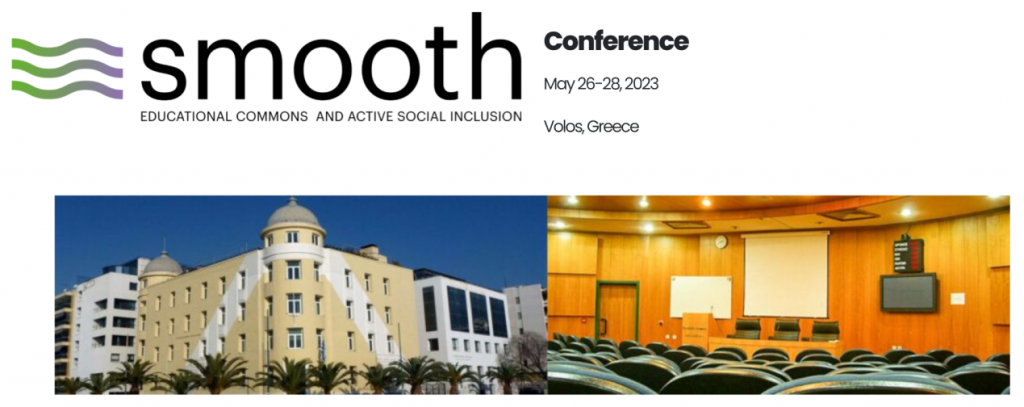
Thessaloniki Airport to City Center by Taxi
If you want to travel fast and comfortably and enjoy door-to-door services without trying to navigate around the city, then the Thessaloniki airport taxis will satisfy your transfer needs. The dark blue cabs offer quick rides to the city center at affordable prices. Therefore, the journey to the city center, under normal traffic, takes approximately 30 minutes. The cost for this ride is fixed, at 24€/24$ during the day and 32€/32$ during the night shift (00:00 am to 05:00 am).
Thessaloniki Airport doesn’t offer many options for your transfer to the city center. Luckily, the airport is located close to the city center, at a 13 km distance. Therefore, the hassle won’t be significant. So, unless you choose a private airport transfer or you rent a car, you can either travel by an airport taxi or take the public airport bus.
| Options | Daytime Price | Night Time Price | Duration |
| Taxi | 24€/24$ | 32€/32$ | 30 min |
| Bus | 1.80€/1.80$ | 1.80€/1.80$ | 40 min |
BUS INFORMATION
From Thessaloniki to Volos
Airport “Macedonia”
City Buses: The city buses connect the airport of Thessaloniki with the New Railway Station, with the centre of Thessaloniki, as well as with the Intercity Station of Macedonia (KTEL). Departure is usually every 30 minutes and the ticket price is around 2 euros.
Directly to the city centre and the opposite:
- No 01X “KTEL – Airport”
- No 01N “KTEL – Airport” (Night line)
https://oasth.gr/#en/routeinfo/list/61/12/73/
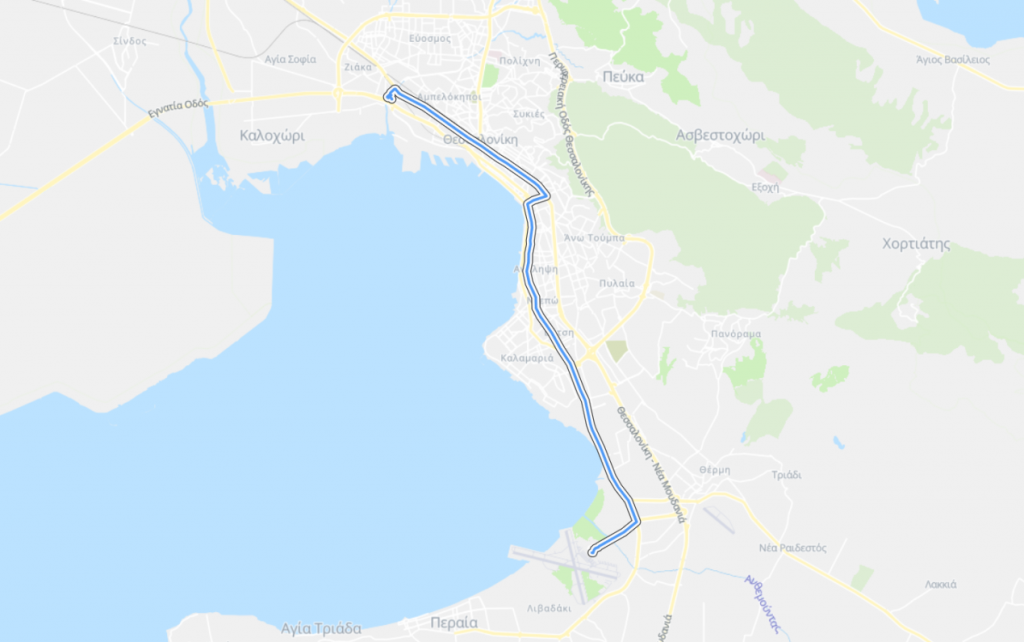
Volos Station KTEL
Address:
Sekeri & Zachou
Routes Information: 14505
Toll free number for mobile and OTE landline.
Volos Station:
800-11-35555 (Toll free for calls from Athens, Thessaloniki and Volos), +30 24210-33253, +30 24210-33254, +30 24210-25527
E-mail: ktelvol@otenet.gr
Fax: +30 24210-25573
Thessaloniki Station (244, Giannitson Str.):
+30 2310-595424
Routes: https://ktelvolou.gr/en/routes/map/&map=greece
E-Tickets: https://ktelvolou.e-ticketing.gr/Pages/Destinations.aspx
Routes
Routes are changing.
For more information please call (+302421033254 )
Thessaloniki to Volos routes: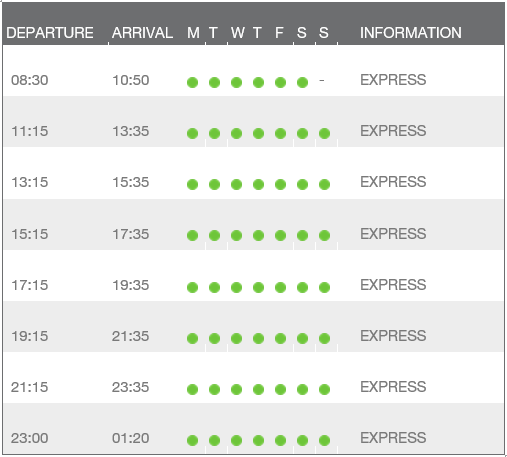
Volos to Thessaloniki routes: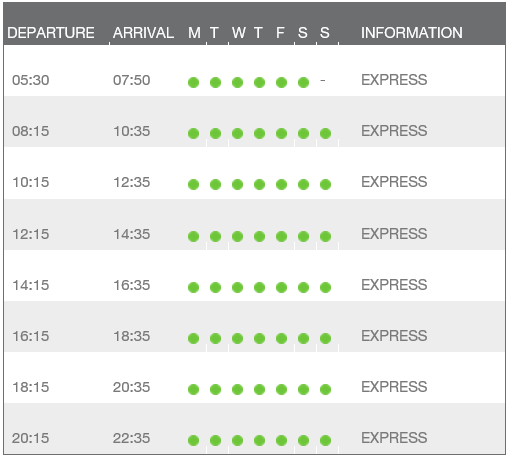
From Athens to Volos
Athens Airport “Eleutherios Venizelos” to KTEL Liosion (Bus Terminal)
- By Bus X93
- By taxi
- By Metro
https://ktelvolou.gr/el/routes/map/&map=greece
Routes are changing.
For more information please call (+302421033254 )
Volos to Athens routes: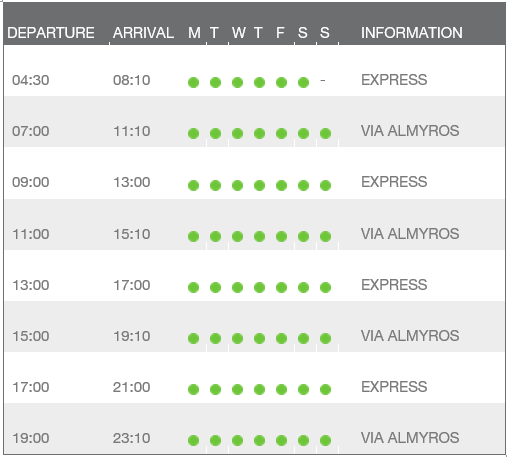
Athens to Volos routes: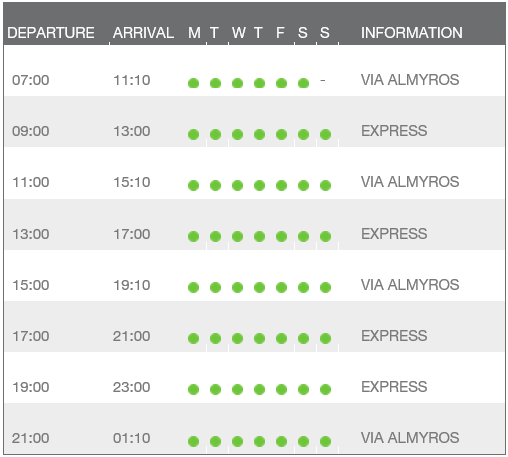
Conference Venue in Volos
University Of Thessaly
Argonafton & Filellinon
382 21, Volos
